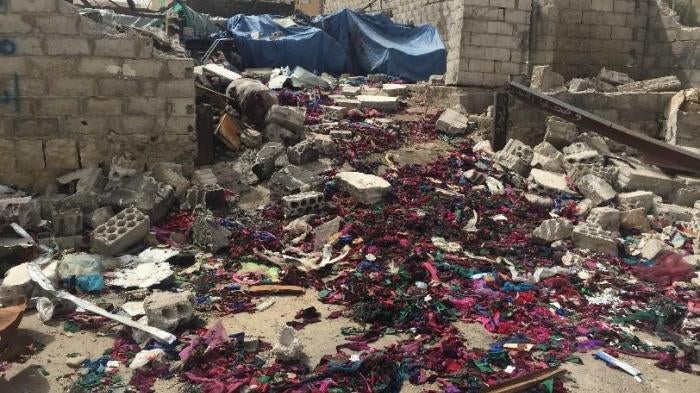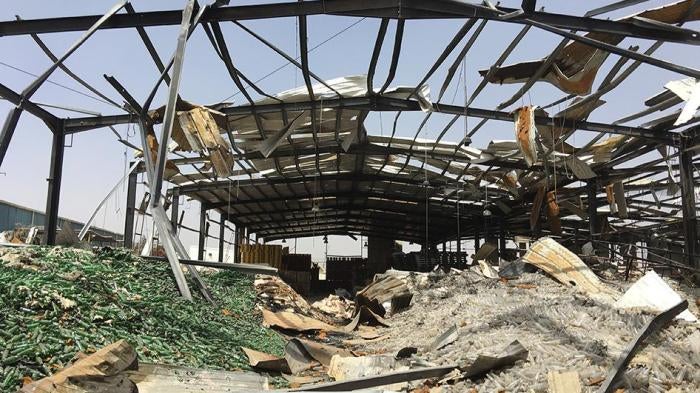Video: Coalition Airstrikes on Factories Heighten Crisis in Yemen
Read a text description of this video
Muhammad Rajih, Food production worker
The first airstrike happened and everything went dark. There was blood everywhere.
Text on screen
The Al-Aqil Industrial Compound in Yemen employed 400 people producing basic goods like food, clothing, and plastic bags.
On January 19, 2016 it was hit by a Saudi-coalition airstrike that injured 29 workers.
Muhammad Rajih, Food production worker
We got out to find the factory manager to go help him. That’s when the second strike happened. I was injured on my head and leg.
Text on screen
Since the war began in March 2015, Human Rights Watch has documented numerous unlawful airstrikes on civilian businesses.
These facilities employed over 2,500 people.
Hundreds have lost their livelihoods.
Raouf al-Sayideh, Garment worker
This factory was the livelihood of many families. We tried to understand why they would strike us, but we couldn’t think of any reason.
Text on screen
These strikes are contributing to severe shortages of food, medicine, and other civilian necessities.
They raise serious concerns that the coalition has deliberately sought to inflict widespread damage to Yemen’s economy.
Currently, 20 million people, over 80 percent of the population, need some form of humanitarian assistance.
Raouf al-Sayideh, Garment worker
After all this, we lost our jobs and we are still unemployed.
Text on screen
Saudi Arabia should stop blocking an independent UN inquiry into the attacks
and victims of unlawful attacks should be compensated.
Saudi Arabia-led coalition airstrikes have unlawfully hit numerous factories, warehouses, and other civilian economic structures in Yemen. In the absence of credible and impartial investigations in Yemen, Saudi Arabia and other coalition members should agree to an independent international inquiry into these and other allegedly unlawful attacks.
Human Rights Watch interviewed victims and witnesses at the sites in the Sanaa and Hodaida governorates in March 2016, searched for possible military targets in the vicinity, and examined remnants of munitions found.
The laws of war prohibit deliberate attacks on civilian objects, attacks that do not discriminate between military targets and civilian objects, and attacks that disproportionately harm civilian objects compared with the expected military gain. Civilian objects include factories, warehouses, and other commercial enterprises so long as they are not being used for military purposes or become a military objective. Attacks on civilian objects committed willfully – deliberately or recklessly – are war crimes.
Related Content

